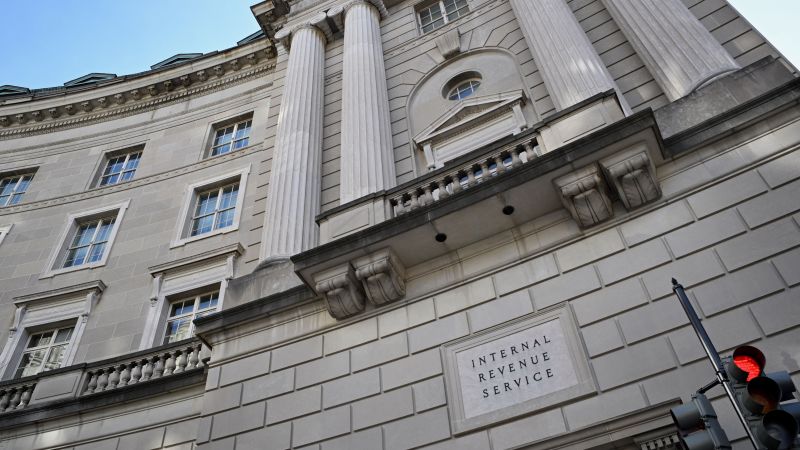The Internal Revenue Service said Wednesday that it will begin dozens of audits this spring examining the personal use of corporate jets as it ramps up its enforcement efforts.
The announcement is part of the Biden administration’s effort to tout how the IRS is using money provided by the Democrat-backed Inflation Reduction Act to go after wealthy tax cheats – while Republicans continue efforts to chip away at the agency’s funding.
“The IRS is using advanced analytics and resources from the Inflation Reduction Act to more closely examine this area,” IRS Commissioner Danny Werfel said on a call with reporters.
“These aircraft audits will help ensure high-income groups aren’t flying under the radar with their tax responsibilities,” he said.
There are currently 10,000 corporate jets operating in the US, according to Werfel, and related business tax deductions for air travel can amount to tens of millions of dollars.
US law allows business tax deductions for the use of those jets – but only for business use. The IRS is concerned that sometimes personal trips, like a hypothetical CEO’s vacation, are not excluded from the deduction. Additionally, some individuals may be failing to report personal use of corporate jets as income, like they should.
The audits will focus on returns from large corporations, large partnerships and high-income individuals. The IRS has said that the number of audits of those groups has fallen after decades of underfunding and shrinking staff levels.
Ramping up enforcement and improving taxpayer services
The latest announcement from the IRS is part of a larger effort to modernize the agency.
So far, the IRS has used Inflation Reduction Act funds to help collect more than $482 million from 1,600 millionaires who had not paid their tax debts.
Another key part of the IRS overhaul is to improve taxpayer services. One of the first things the IRS did with the boost in funding was to hire more people to answer the phones when taxpayers call with questions.
Last month, to coincide with the start of tax filing season, the IRS launched its own free, direct tax filing service. The pilot program, known as Direct File, is limited to a very small percentage of taxpayers this year.
The agency is also taking on a huge effort to digitize more than 1 billion historical paper documents stored at IRS campuses across the country, as well as immediately digitize all new paper returns coming in. Until now, the IRS has not had the technology to digitize a paper tax return or form. Instead, an IRS employee had to manually enter each digit from the form into the agency’s system.
The Inflation Reduction Act, which passed in 2022 without any Republican votes, approved about $80 billion for the IRS over a 10-year period.
The Biden administration has repeatedly said that taxpayers earning less than $400,000 a year won’t see an increase in taxes as the IRS expands its enforcement efforts.
But Republicans have claimed that the IRS will use the money to hound middle-class taxpayers and small-business owners and have made several efforts to claw back the money.
In 2023, the Republican-controlled House’s first vote was to rescind nearly all of the $80 billion. The House GOP later approved a bill to abolish the IRS altogether and replace the entire federal tax code with a national sales tax.
Neither of those bills were taken up by the Democrat-controlled Senate. But in a deal to address the debt ceiling and avoid a US default last June, Democrats agreed to allow for $20 billion of the Inflation Reduction Act funds to be rescinded.
In January, Democrats conceded an acceleration of the $20 billion cut in an effort to get a full-year federal spending law passed in time to avoid a partial government shutdown.
Read the full article here





